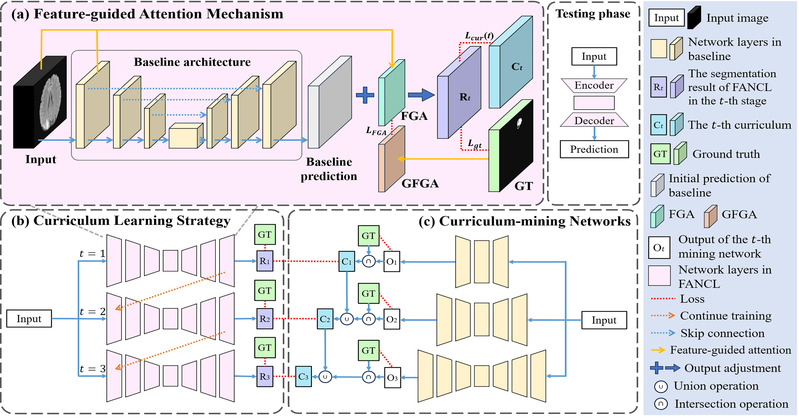

FANCL: Feature-Guided Attention Network with Curriculum Learning for Brain Metastases Segmentation
NeuroComputing (IF=6.5)
Abstract
Accurate segmentation of brain metastases (BMs) in MR images is crucial for clinical diagnosis and treatment. However, the task remains highly challenging due to the inherent complexity of BMs and the technical limitations of existing methods. To address common issues including the loss of information from small-sized BMs due to convolutional and pooling operations, the difficulty of segmentation caused by complex metastasis morphology, and the lack of effective learning strategies, the study proposes a novel feature-guided attention network with curriculum learning (FANCL) to achieve precise segmentation of metastases. Specifically, the feature-guided attention mechanism constructs a feature-guided attention matrix by calculating the cross-correlation between the input image and intermediate feature maps, thereby establishing intrinsic connections between BMs of different sizes. This effectively utilizes the rich information from larger tumors to compensate for the loss of high-level features in smaller tumors. To enhance the model’s ability to handle the complex structures of BMs, a voxel-level curriculum learning strategy is proposed, which organizes the voxels in the training images according to their segmentation difficulty, guiding the model to gradually learn the detailed features of BMs from easy to difficult. Simultaneously, by using baseline models of varying depths as the curriculum-mining networks, FANCL dynamically controls the curriculum learning process, thereby further enhancing the model’s adaptability to the heterogeneity of BMs. Comprehensive evaluations conducted on the publicly available BraTS-METS 2023 and BraTS-METS 2024 datasets indicate that FANCL outperforms current state-of-the-art methods across multiple metrics, significantly aiding clinical practice.
